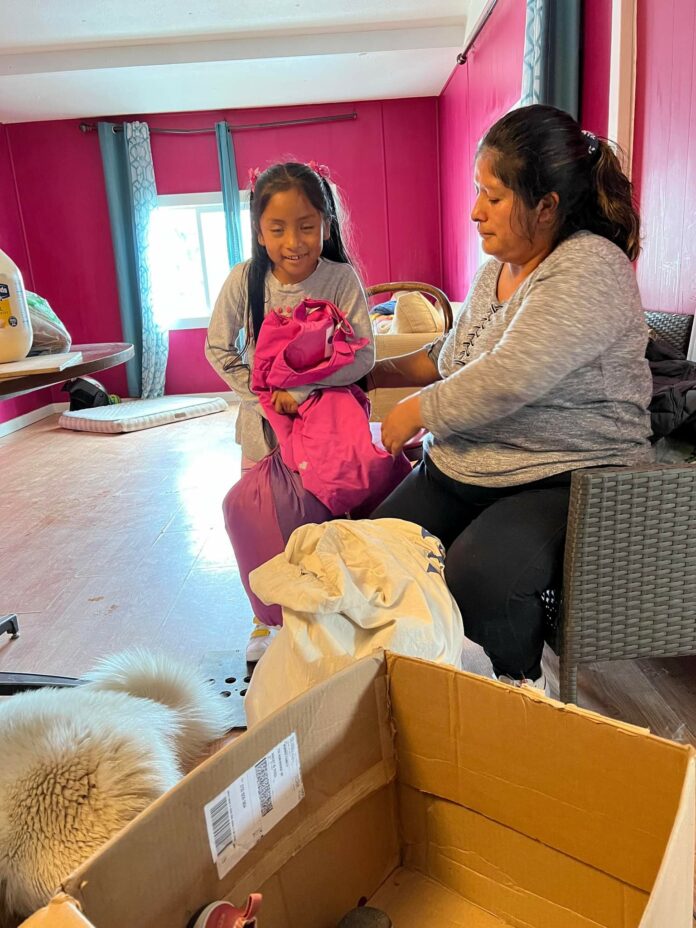Peruvian newcomers say they are seeking safety
By Claudia Mohr
In the past year, Blaine County has experienced an influx of Peruvian families, many of whom have roots in Idaho that go back four decades as a workforce in sheepherding, dairy and service industries. With the long history of Peruvians in the Wood River Valley, it is no accident that the region is a destination for families currently seeking refuge. Families are fleeing Peru due to a recent coup. The resulting civil unrest, danger from terrorists, and corruption, and the desire to live in a safe environment are what many cite as reasons for immigrating to the United States to seek amnesty.
For years, the local Peruvian population has been a mainstay of the local workforce, particularly in service industries, and many recent newcomers are finding work within weeks of their arrival. However, things are not easy for immigrants and the community has rallied to support newcomers even when the national dialogue about immigrants is divisive. There are many support services available for those in need and community nonprofits are on the frontline of addressing the concerns of homeless Peruvian families for housing, hunger, and other essential services.
“What local families are up against is devastating, but knowing that our community is full of caring, compassionate folks who, time and again, rise to the needs of the people, gives us hope,” says Kristin McMahon, communications manager for The Hunger Coalition. According to the organization, The Hunger Coalition has seen a 47 percent rise in families with food insecurities, a rise that is at least partially attributable to the recent increase in Central and South American migrants seeking refuge in the community.
The Bloom Community Food Center and The Hunger Coalition’s new 13,000-square-foot facility at 110 Honeysuckle Street in Bellevue, complete with two greenhouses, a meeting room, a café and a community kitchen, effectively feeds more than a thousand people every week. On Thursdays, from 12 to 2 p.m., the café serves free meals to the public. Free food distribution is Mondays and Thursdays from 1 to 6 p.m. Ketchum distribution food boxes are available from 3:30 to 4:30 p.m. at Hemingway Elementary School at 111 Eighth Street West in Ketchum. There is no qualifying documentation required for The Hunger Coalition services. They have also created an online ordering system allowing families to specify their needs and pick up their food boxes three times a week at the above designated locations. Call (208) 788-0121 for further information.
St. Luke’s Center for Community Health, located at 100 Hospital Drive in Hailey, connects people in need of help navigating a new country and culture with appropriate nonprofits according to their particular situation. They work in partnership with local organizations to improve the mental and physical outcomes of the people in the community. They provide transportation, medical services, mental health counseling, and help navigating community resources.
Herbert Romero is another resource for newcomers. Romero founded Neighbors Helping Neighbors in 2017 to reach out to community members in need. He has recently coordinated with local churches, charities, nonprofits, community leaders and private donors, bringing hope and help to our neighbors with an outstretched hand.
Many in the nonprofit world find the reward of the work far outweighs the work itself. “We are proud to work alongside Carissa Connelly, housing director for the City of Ketchum, the Blaine County Charitable Fund, The Alliance of Idaho, St. Luke’s Center for Community Health and others to rally emergency solutions to the housing crisis now, while advocating for more long-term solutions for our workforce,” says Kristin McMahon.
In 2017, the Ketchum City Council unanimously approved and certified Ketchum as a Welcoming City. A Welcoming City welcomes all people, including refugees and immigrants. In 2018, Boise followed suit.



